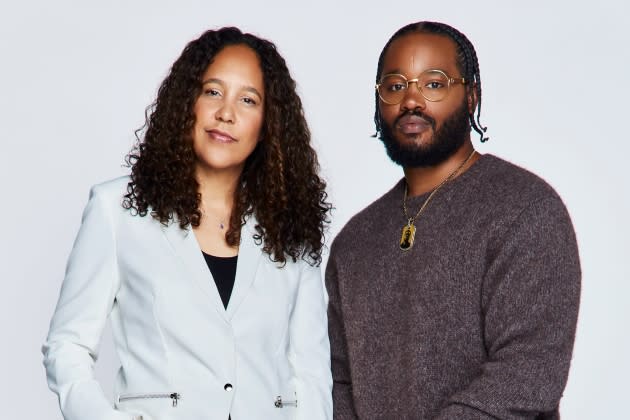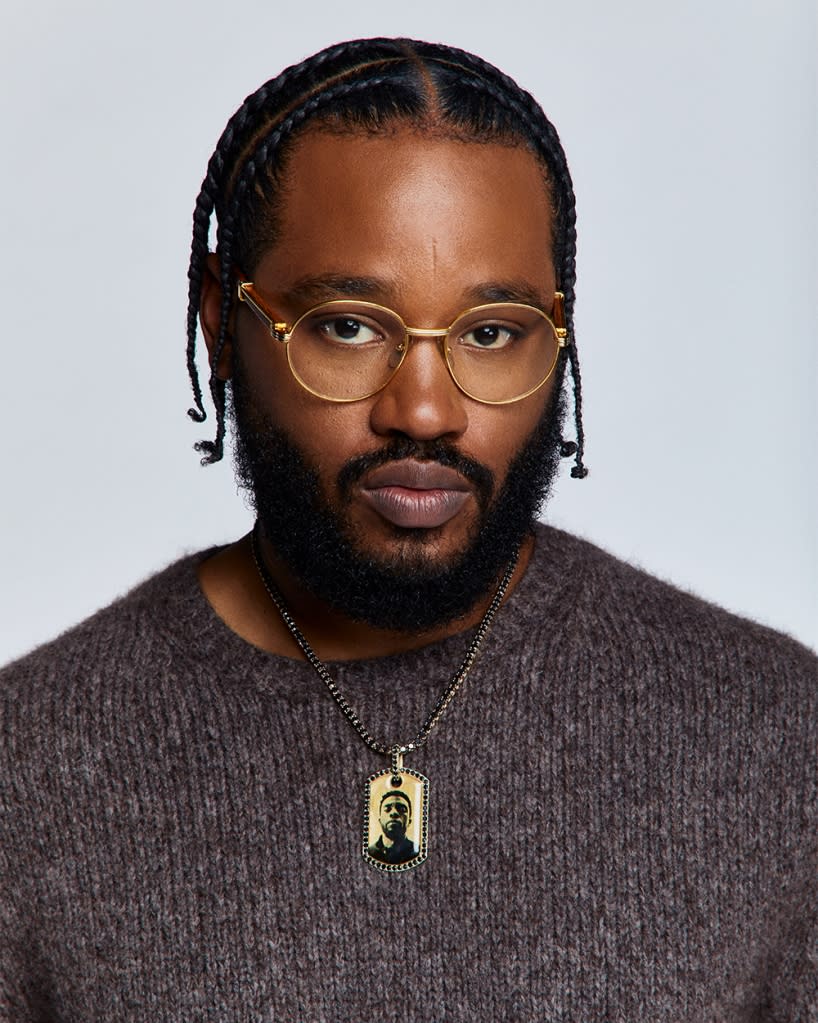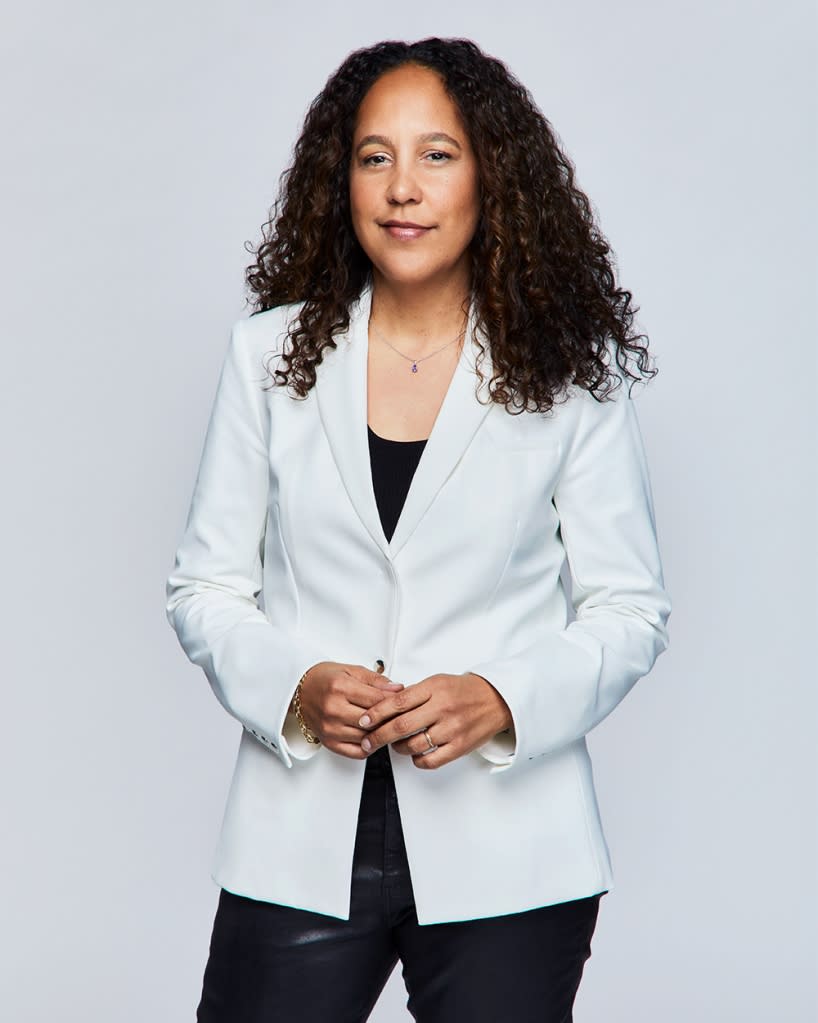Ryan Coogler and Gina Prince-Bythewood Shake Up Hollywood: How ‘Black Panther’ Success Made ‘The Woman King’ Possible
- Oops!Something went wrong.Please try again later.
- Oops!Something went wrong.Please try again later.
- Oops!Something went wrong.Please try again later.
- Oops!Something went wrong.Please try again later.
- Oops!Something went wrong.Please try again later.
- Oops!Something went wrong.Please try again later.

Gina Prince-Bythewood — one of the most successful Black women directors in Hollywood and the visionary behind “Love & Basketball,” “Beyond the Lights” and “The Old Guard” — took a special date to the world premiere of “Black Panther: Wakanda Forever”: her teenage son Toussaint.
“Seeing you there, knowing it’s a movie about motherhood more than anything, I got really emotional,” Ryan Coogler, the director who shepherded the superhero sequel, tells Prince-Bythewood. “I was trying hard to hold it in when I saw you both.”
More from Variety
The premiere in November was already an emotional affair — as cast and crew paid tribute to the franchise’s late star Chadwick Boseman, who died in 2020 — and took place just weeks after Prince-Bythewood released her latest hit film, “The Woman King.” The action epic, like “Wakanda Forever,” put Black protagonists at the center of a genre that has historically featured white heroes.
“It was really beautiful to be there to see the work — the way you honored Chadwick but also how you continued the story,” Prince-Bythewood tells Coogler. “I love the fact that in that huge platform you were able to tell such a personal story and have such depth about what grief really means.”
The two directors trade war stories and examine how their movies, both of which unfold in African kingdoms (one imagined and one reclaimed), manage to walk the line between art and populism.
Ryan Coogler: I was born in the ’80s, and when I was going to movies on my own, I was going to see “Gladiator,” “Braveheart,” that kind of scope. “The Woman King” had that aspect to it, but also it felt like a very personal story. I feel like you maybe made your most personal film.
Gina Prince-Bythewood: Which is weird on this type of canvas.
Coogler: I don’t know how you did it, to make something that feels historical but still fresh and new. It feels very empowering and educational, yet fun and exciting. I was moved by it.
Prince-Bythewood: I felt blessed by this group of actors because it’s not only that they all have incredible chops, but they’re so passionate about the work. And they’re such good people. What we do is really hard. So to be able to have actors that have your back, that are in this journey with you, that respect the process and the work, it’s everything. And especially once you start working in this bigger sandbox and all the other stuff that comes with that.
Coogler: How long was this process for you?
Prince-Bythewood: It’s a trip in terms of why things come and when they come. I had just come off “Old Guard” — that was two years of my life. And it’s hard. I was away from my boys, my husband. So after, I said, “I’m taking a break.”
Coogler: Those are the worst words ever said as a working director, right?
Prince-Bythewood: But I made a promise: I’m not going to do it again until they’re out of high school. Then the script came, and it was everything I feel like my whole career’s been building toward. Those movies that you saw as a young person, I love those, but I never saw us in them. It really was my goal, even back then, to make a historical epic with us, and now here it was.
I remember reading and loving it and saying, “Damn, I’ve got to let this one go.” But I sent it to my husband, and literally two hours later, he texted me, “Here’s your next movie.” I loved everything about it: the historical aspect of it, these female characters, the fact that Viola Davis was attached — the opportunity to touch greatness, how often do we get to do that? And that’s what she is. I also felt I knew how to do this film, coming off the action in “The Old Guard.”
On this whole press tour, I love talking about, not even the success of “Black Panther,” but what you did with it. How you told the story, and how you infused us and culture and depth, absolutely opened the door for this film. I don’t know that “Woman King” would be made if you didn’t do what you did with “Black Panther.”

Coogler: That’s heavy. That’s an honor to just hear that. But I got to be honest with you, I grew up watching your movies, so if that’s in any way how it worked, I’m paying it forward. Your work as a director presents characters in a safe space. I remember the feeling in “Love & Basketball,” those two characters on the court with each other, it just feels like you get to lean in and get comfortable, and watch these people open up. You’ve done it in all your films.
And for this one, you’re working with these almost archetypal characters. The general, the wisecracking second in command, the young trainee upstart who you watch on the journey and the confidant — these characters exist in these types of movies. But to see it played by these Black women that I feel like I recognize, and to see them in the moments where they’re swinging the swords and doing the training montages, but to also see it in those quiet moments, I’m like, “Oh, yeah, that’s that same feeling I got when I was watching these other films here in this big landscape piece.” I think you made something unique. It feels timeless that way.
Prince-Bythewood: Thank you. Now, the first time we met was when I came to see “Fruitvale Station.” I don’t like crying in public, but I literally was ugly crying in that. I was so excited to meet you because of what you did with that film and the depth of it. If you look at your body of work, every film that you’ve done has shifted culture. The way that you center Black men and Black masculinity and show it in different ways and go against what so many of us grow up with thinking it should be, that’s a powerful thing. Is that something intentional?
Coogler: I’ve been fortunate to have the opportunity to work while I was relatively young, and I thought that I wanted to make things that I could relate to, movies that I would want to see. But each time I make a movie, I’m dealing with my own personal fears. And I’ve been fortunate enough to be able to start from the script in these cases — “Fruitvale,” I was on my own, but in the other films I was blessed to have co-writers — and oftentimes it comes back to “What are we afraid of? What’s our biggest fear?” In these movies, the characters are oftentimes wrestling with that. In “Creed,” it’s all about the fear of not realizing your potential before it’s too late.
In “Wakanda Forever,” there’s this idea of being a man who has a lot of people counting on you, and then what happens if you’re taken away from those people? How do they pick up the pieces? That was a big thing, and we were living it with Chadwick Boseman passing away. We were trying to figure out what it meant, the best way forward, and, at the same time, still in a lot of pain. So that question of masculinity, specifically Black masculinity, was just about making something that was honest to me emotionally each time.

Prince-Bythewood: You jumped into that big sandbox earlier than I did. But do you feel like you have to constantly fight for your vision, even now?
Coogler: I think so. I know that as the budgets get bigger, it’s more at stake. I’ll never want to be the guy who’s like, “Hey, give me $200 million and let me do what I want with this.” I never wanted to have that pressure, and I never had that expectation for myself. You know what I’m saying? But yeah, if you got a specific vision, if you got something to say as an artist, you always got to get people in line with that. It is never just easy. The idea of creative control, I feel like you had it here — it doesn’t feel any less like a Gina movie than “Love & Basketball” or “Beyond the Lights.” How have you managed to navigate it?
Prince-Bythewood: I know the fight it takes to center us in stories, to even get them greenlit. I have to be able to look up on that screen and believe every single thing up there, so that’s why I’m going to fight for everything.
Best of Variety
'House of the Dragon': Every Character and What You Need to Know About the 'Game of Thrones' Prequel
25 Groundbreaking Female Directors: From Alice Guy to Chloé Zhao
Sign up for Variety’s Newsletter. For the latest news, follow us on Facebook, Twitter, and Instagram.

